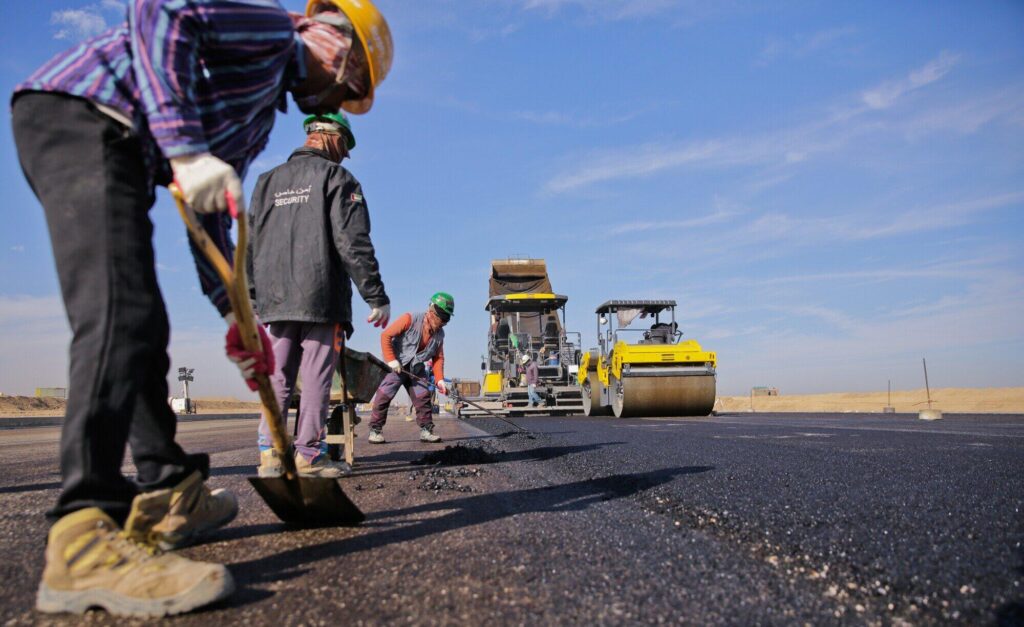Are you deciding between concrete vs asphalt for your driveway? Both options have their strengths and weaknesses to consider.
Do you prioritize durability, cost, or aesthetic preferences for your home? Concrete lasts longer, but asphalt is often cheaper and quicker to install.
Each material fits different needs, climates, and budgets. Understanding the pros and cons can help you make the right choice. Let’s explore.
Durability and Lifespan
Concrete driveways are known for their long lifespan, often lasting 30 years or more with proper care. Concrete is strong and durable. It makes it ideal for long-term use.
Asphalt driveways, yet, last around 15-20 years but are more flexible. This flexibility helps asphalt resist cracks caused by freezing and thawing in colder climates.
Concrete may crack if the ground shifts or experiences heavy loads. Regular maintenance, like sealing cracks or cleaning, can extend the life of both materials. When choosing between concrete and asphalt, think about how long you need your driveway to last and the typical wear it will experience.
Cost of Installation
Asphalt driveways are more affordable to install, making them a good choice for those on a tight budget. The upfront cost of asphalt is usually lower than concrete, but concrete offers better long-term value due to its durability.
Concrete is more expensive initially but may save you money over time with fewer repairs. The overall installation cost depends on the size and condition of your driveway.
Hiring a trusted paving contractor ensures a fair price and quality results. Don’t forget to consider future expenses, like repairs and maintenance, when deciding which material fits your financial plan best.
Maintenance Needs
Both concrete and asphalt require care to keep them in good condition. Asphalt driveways need resealing every few years to prevent cracks and water damage. Concrete, while more durable, may develop cracks over time that require patching.
Cleaning both materials regularly helps prevent damage from debris, grease, or stains. Asphalt repairs are generally easier and less costly but may need to be done more often. Concrete repairs are pricier but less frequent.
Understanding the maintenance requirements of each material can help you choose the one that fits your time and effort. Proper maintenance keeps your driveway safe and looking its best.
Appearance and Aesthetic Preferences
The appearance of your driveway can enhance the look of your home. Concrete offers many design options, including stamped patterns, colors, and textured finishes, allowing for a more customized look. This makes concrete a popular choice for homeowners with creative aesthetic preferences.
Asphalt has a clean, simple black surface that provides a timeless and uniform appearance. While it lacks customization options, it complements a variety of home styles.
Think about whether you prefer a decorative or straightforward look. A driveway that matches your home’s design can improve curb appeal and make your property more attractive.
Performance in Different Climates
Your local climate plays a big role in deciding between concrete and asphalt. Asphalt performs well in cold climates because it expands and contracts without cracking. Yet, it may soften and become damaged in high heat.
Concrete is heat-resistant and ideal for hot areas but can crack in freezing temperatures. In regions with frequent temperature changes, concrete may require additional care to prevent cracking.
Consider how your area’s weather will affect the material over time. Choosing a driveway material suited to your climate ensures it lasts longer and performs better in different seasons.
Installation Time
If you need a driveway installed quickly, asphalt is the faster option. It can be laid and ready to use within a few days, making it ideal for tight schedules.
Concrete takes longer to install because it requires curing time, which may take up to a week or more before it’s fully usable. The installation process for concrete is more detailed, especially if you choose decorative finishes.
Asphalt’s quicker installation time is helpful when weather conditions or deadlines are a concern. Discuss your timeline with a paving contractor to choose the material that works best for your schedule and needs.
Environmental Impact
When considering the environment, asphalt stands out as a more eco-friendly choice. Asphalt is recyclable, meaning old materials can be reused for new projects. This reduces waste and makes asphalt a greener option.
Concrete, while durable, produces more carbon emissions during manufacturing and is harder to recycle. Yet, some paving contractors offer environmentally friendly concrete mixes to reduce its impact.
If sustainability is important to you, discuss options with your contractor. By choosing materials with a lower environmental footprint, you can make a decision that benefits your driveway and the planet.
Repair Costs Over Time
Concrete and asphalt differ in repair costs and frequency. Concrete repairs, such as filling cracks or replacing sections, are more expensive but less frequent.
Asphalt repairs, like filling cracks or potholes, are cheaper and simpler but may be needed more often. Over time, these repair costs can add up, especially if the material isn’t well-maintained.
Consider the total cost of repairs when deciding which material to choose. A driveway that requires fewer repairs can save money in the long run. Balancing initial costs with future repair expenses helps you make the best decision for your budget.
Skid Resistance and Safety
Safety is an important factor when choosing a driveway material. Asphalt provides better traction, making it a safer choice in wet or icy conditions. Its textured surface helps reduce the risk of slipping.
Concrete, while smooth and visually appealing, can become slippery when wet, especially if it’s sealed. Adding a textured finish to concrete can improve skid resistance.
If you live in a rainy or snowy area, asphalt may be the safer option. Both materials can be treated to improve traction if needed. Prioritizing safety ensures your driveway is not only functional but also safe for everyday use.
Discover the Pros and Cons of Concrete vs Asphalt
Choosing between concrete vs asphalt depends on your specific needs. Consider costs, durability, and maintenance requirements when making your decision. Both materials have pros and cons, so understanding them is essential.
Concrete offers long-term strength, while asphalt is cost-effective and flexible. Maintenance, climate, and safety should guide your final choice.
By weighing all factors carefully, you can select the right driveway material. A well-informed choice ensures your driveway lasts for years!
Did you find this article helpful? If so, check out the rest of our site for more informative content.







